Why Christian Apologetics Miss the Mark
The Sunday of Saint Gregory Palamas and developing "dogmatic consciousness."

“There’s no one more dangerous than the man who knows the steps but hasn’t walked them.”
I was recently talking to a friend about therapy. A therapist himself, he observed that the path to healing can also be a means of abuse.
Someone with an abstract knowledge of a 12 Step program, for example, can use that knowledge to manipulate and harm others.
Especially if that person hasn’t actually reached a state of healing himself.
Why is this on my mind?
Well, the second Sunday of Great Lent is dedicated to Saint Gregory Palamas, who defended a simple yet critical truth:
It is possible for us to encounter and know the Living God.
(This is why the essence/energies distinction that Saint Gregory taught is so important, by the way. While God remains unknowable in His essence, He is knowable in His energies.)
As I heard my friend discuss the danger of an abstract approach to therapy, I couldn’t help but think of the danger of an abstract approach to the life and healing which the Church alone can offer.
Because, as he observed:
“There’s no one more dangerous than the man who knows the steps but hasn’t walked them.”
So this week, in light of our celebration of Saint Gregory and the truth he both experienced and preached, we’ll explore why contemporary Christian apologetics—and the internet culture that facilitates it—misses the mark.
After all, as Saint Silouan the Athonite observed, “It is one thing to believe in God, and another to know God” (Saint Silouan the Athonite, p. 189).
But first, let’s take a step back…
A Brief History of Apologetics
If you’ve ever read Plato, you’re probably familiar with his Apology. In that dialogue, we see Socrates defend himself against charges of “corrupting the youth” and “not believing in the city’s gods.”
But the defense didn't work. The jury ultimately found Socrates guilty. So the great philosopher and gadfly was sentenced to death by poisoning.
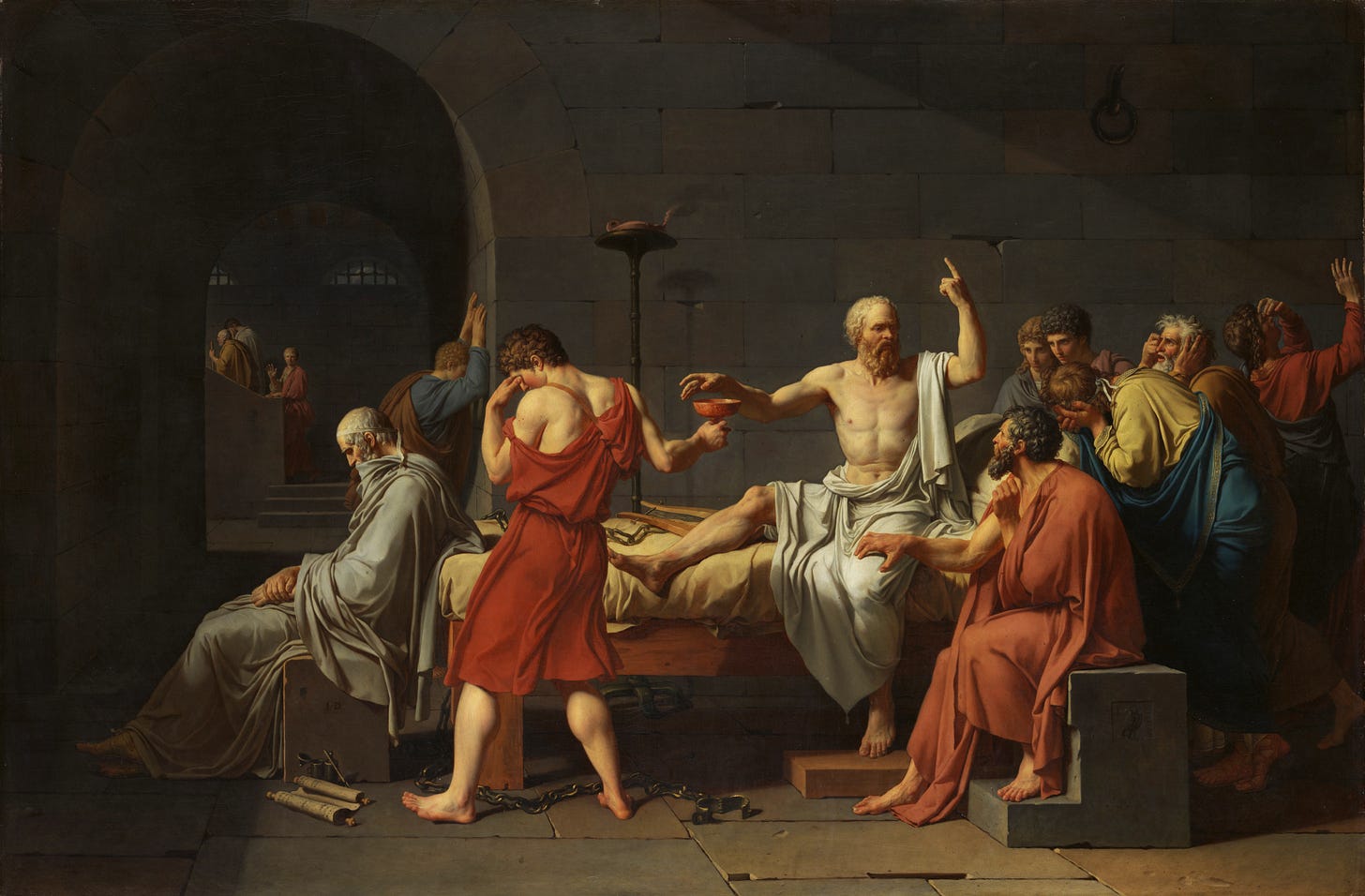
The first time I read Plato’s Apology, I was surprised to learn that Socrates wasn’t saying “I’m sorry” to the Athenians. He was defending himself. And that’s exactly what apologetics are: words offered in defense rather than regret or remorse.
The Church has experienced persecution repeatedly over the past two thousand years, so Christian apologetics developed relatively early. And this wasn’t to say “sorry” in the face of persecution but rather to stand up to it.
(Origen, for example, composed the influential Contra Celsum in the third century in response to a series of charges leveled against the Church by the pagan writer Celsus.)
But what’s particularly interesting about such early examples of Christian apologetics is that they were drafted in a Secular1 world where both Christians defending the Church and pagans attacking the Church shared key assumptions about reality: that existence included both material and spiritual realities, that basic rules of logic governed discourse, etc.
In other words, these Christian apologists weren’t defending the idea of God from hostile nonbelievers or responding to a fundamentally different worldview. Instead, these Christian apologists were:
defending Christians from outrageous allegations of immoral conduct,
defending the person of Jesus Christ from insults and misunderstanding, or
arguing from a shared, classical philosophical tradition (Plato, Aristotle, etc.) in an era where the transcendent was commonly accepted.
But that’s not the shape that apologetics take today.
Because today, Christian apologetics are framed as the Church’s response to a hostile, foreign culture: we need to defend the faith from secular forces intent on eliminating Christianity altogether.
Which is, as you might recall, a Secular2 story.
But that’s the story of a different era. And it’s why, in our Secular3 world, Christian apologetics efforts miss the mark…
Apologetics in our Secular3 World
As we explored a few weeks ago, we live in what philosopher Charles Taylor calls a “Secular3” world where our unstated assumptions make belief increasingly implausible.
But, while belief is certainly possible in this era (as we explored last week), the nature of this belief is different when compared with earlier stages of Christian history. We live in an era where all beliefs are equally contested and contestable.
As a result, “we don’t believe instead of doubting; we believe while doubting.”
(In case you missed it, go back and read our summary of Taylor’s work.)
So what do our shared, postmodern assumptions mean for Christian apologetics?
Well, for two millennia, Christian apologists have attempt to respond to the charges and attacks of those hostile to the Church. But Taylor observes that, as we moved into the modern period, these apologists began to unwittingly undermine the very God they sought to defend.
In other words, as the assumptions behind our approach to faith began to shift, Christian apologetics didn’t simply respond to these changes but actually began to reflect them.
Let’s break that down a bit…
Beginning in the Age of Enlightenment, people began to believe that the human mind was capable of understanding all things. So, as Christian apologists attempted to defend God from attack, they unwittingly accepted the baseline assumption of the day: that God could be completely understood by the human mind.
God, in other words, was shrunk down to just another idea that the human mind could understand, contain, and explain.
What [Taylor] finds is that the responses themselves have already conceded the game; that is, the responses to this diminishment of transcendence already accede to it in important ways (Taylor will later call this ‘pre-shrunk religion’)…The scaled-down God and preshrunk religion defended by the apologists turned out to be insignificant enough to reject without consequence. In other words, once God’s role is diminished to that of a deistic agent (by his defenders, we should add), the gig is pretty much up. (How (Not) to be Secular, pp. 51, 53)
Thus, while defending God from the philosophers, Christian apologists unwittingly reduced God to a philosophy.
Now, that’s nothing new. This flattening of faith is something we’ve already observed.
But the internet has taken this flattening to a whole new level and helped reveal the irony that Taylor points to: that Christian apologetics, far from defending the Church, are actually transforming it.
And not in a good way…
The Internet and Apologetics
In the past decade, there’s been an explosion of “Orthodox” content online. In fact, I actively participated in it.
(Which is, perhaps, another conversation for another day.)
But I did so with some important safeguards in place…
For example, I wasn’t simply a guy who started a YouTube channel: I was the Director of Youth & Young Adult Ministries for the Greek Orthodox Archdiocese of America. Engaging online was literally my job—a job that included accountability if I did or said anything out of bounds. And I received this job after after four years of formative preparation at Holy Cross Greek Orthodox School of Theology (not to mention years of preparation before that).
And these safeguards were in place because I wasn’t simply engaging with ideas I found interesting. Rather, I was called (or, at the very least, appointed) to do important work: to teach and preach and support the work of ministry in communities across the Church.
But much (probably even most) of the content that purports to be “Orthodox” isn’t subject to these safeguards, which I’ll summarize as:
canonical regularity (performing a function by virtue of ones ecclesial office or position, rather than by virtue of personal choice or ambition);
accountability (being part of a structure larger than oneself); and
formative preparation (being part of a community that can both shape and judge ones character before commissioning one for a particular ministerial task).
And the lack of these safeguards is even more concerning when this content is framed in apologetical terms: as if people are somehow “defending” the Church without having been called by the Church to do so.
But, having learned about the assumptions that shape our Secular3 world, we can understand what makes contemporary apologetics possible…
After all, in an era when the individual is tasked with creating meaning for himself, it’s no surprise that individuals appoint themselves to positions of teaching authority without any canonical regularity, accountability, or formative preparation.
And it’s no surprise that people tempted to religiosity in our Secular3 world would see themselves as “defending” the Church from the onslaught of external forces rather than do the hard work of repentance and understand how secularity has taken root in their own hearts.
Unfortunately, this means that contemporary apologetics don’t simply reflect the intellectual assumptions of our secular age, they also reflect the character of the age.
As you’ve likely seen for yourself, much of the “Orthodox” posturing one comes across on the internet is prideful, nasty, shallow, self-indulgent, and outright deluded (even if technically “right” about this or that academic point).
Because I fear that this defensive posture—especially when combined with a lack of the three safeguards we listed above—comes with an inherent risk. And I’ll use an example from some classic literature to illustrate…
The Saruman Effect
If you’ve ever read (or watched) The Lord of the Rings, you know the character of Saruman. He was the leader of the White Council. His task was to oppose Sauron.
Yet he fell.
"This is grievous news concerning Saruman, for we trusted him and he is deep in all our counsels. It is perilous to study too deeply the arts of the Enemy, for good or for ill."
When Galdalf confronted his former colleague on the White Council, he pointedly asked, "Tell me, friend, when did Saruman the Wise abandon reason for madness?"
We may not know "when," but we do know why: the attention he directed towards the darkness turned into fascination and obsession.
And so he fell under the Dark Lord's sway.
Saruman was wise: he knew the steps, so to speak. Yet he didn’t walk the steps himself.
His fall should be a warning for anyone engaged in apologetics or internet chatter more generally.
Because, like Saruman, it’s too easy to focus our attention on the bogeymen we fear rather than the One we are called to follow. Our “defense” of the Church becomes a Secular3 affirmation of the self: rather than begin with a posture of repentance—seeing ourselves as the chief among sinners—we view some external adversary (whether real or imaginary) as the problem.
On guard against the sin we see in others (whether individuals or traditions or the culture at large), we let down our guard against the struggle in our hearts.
And we forget the One, to our ruin.
Because, slowly, our mind's eye turns from the Light and becomes illumined by the cold and impure flame of our passions. And so like Saruman, we burn from within.
With madness and folly.
But why am I talking about “we” here?
Well, whether or not we consider ourselves to be apologists, we are all subject to the risk of a Saruman-esque fall.
Because we are all tempted to assume a posture of defensiveness, forgetting our own sin and instead obsessing over the failings of others. We are all part of a terminally online ecosystem where our attention is constantly diverted to this or that problem which provokes more outrage than our own sinfulness.
"It is perilous to study too deeply the arts of the Enemy, for good or for ill."
Engaging in contemporary apologetics just deepens the risk.
So, if this isn’t a time for apologetics—for defensiveness and abstract, argumentative discourse—how should Christians engage the world?
Well, think back to Saint Gregory Palamas and the truth he both experienced and preached:
It is possible for us to encounter and know the Living God.
Divine Encounter and Dogmatic Consciousness
In Saint Silouan the Athonite, Saint Sophrony of Essex both presents the life of his spiritual father and describes the experiences Saint Silouan shared with all the saints. This is not abstract, academic knowledge of the Lord but actual communion with Him.
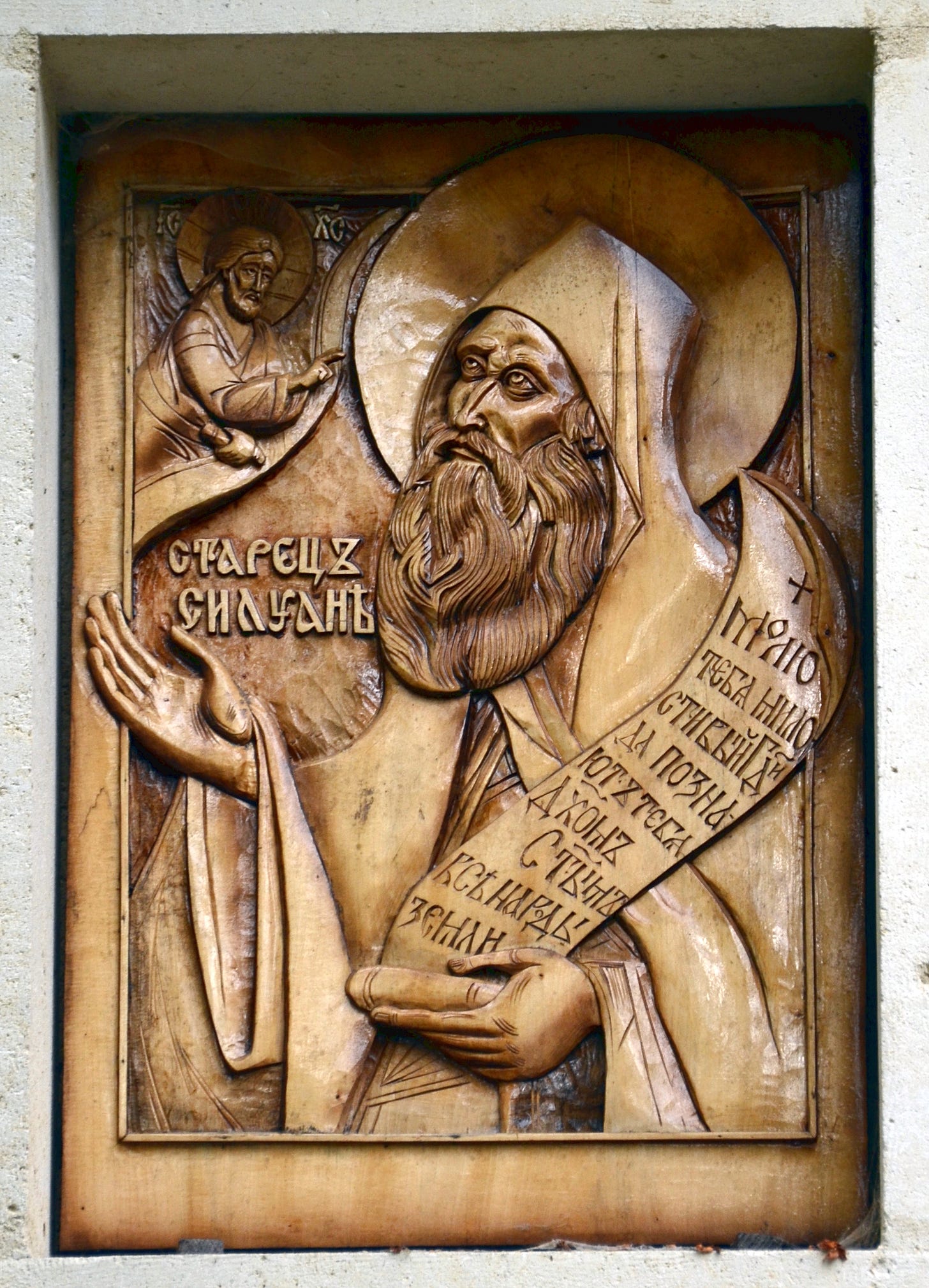
And this genuine encounter leads to what Saint Sophrony describes as “dogmatic consciousness.”
The dogmatic consciousness I have here in mind is the fruit of spiritual experience, independent of the logical brain’s activity…
Dogmatic consciousness where asceticism is concerned is not a rational analysis of an inward experience—it is not “psychoanalysis.” Ascetics avoid this rational speculation because it not only weakens the intensity of their contemplation of the Light but, indeed, interrupts it, with the result that the soul sinks into darkness, left as she is with a merely abstract rational knowledge devoid of all vitality. (Saint Silouan the Athonite, p. 186)
And Saint Sophrony, reflecting on the lives of the Apostles and Fathers of the Church, notes that this dogmatic consciousness takes a long time to develop, “at least fifteen years.”
Our goal, as Christians, should be to develop this dogmatic consciousness: to have real, lived experiences of the real and Living God.
But if we are to pursue God them we must really pursue Him. We must turn our attention away from the enemies—real or imagined—and simply seek the One.
And we must seek the counsel of those who have already developed this dogmatic consciousness themselves.
But that can be hard to do online…
Because, in the past, the Church was better equipped to bring the wisdom of dogmatically conscious people to our attention. When a grace-filled teacher would appear, the Church would share their words with the whole world.
(Saint Gregory Palamas, for example, was the bishop of Thessaloniki. And Saint Silouan lived in anonymity on Mount Athos. But the Church has broadcast the words of both of these great men to the whole world.)
But today, anyone can broadcast anything they wish to the entire world.
We live in a self-motivated, Secular3 world where anyone—even someone who has not been received into the Church—can appoint themselves a teacher. We live at a time when anyone—even someone who has not received the blessing to teach—can reach a wide audience (often an audience wider than legitimate teachers) because they speak the addictive, dopamine-rich noise which the internet is designed to propagate.
So, as we remember Saint Gregory Palamas, remember to look to those who have developed a dogmatic consciousness. If nothing else, look to those who teach with:
canonical regularity;
accountability; and
formative preparation.
And avoid the chatter of the self-called, self-appointed “defenders” of the faith. Avoid those who read books but lack dogmatic consciousness. Because:
“There’s no one more dangerous than the man who knows the steps but hasn’t walked them.”




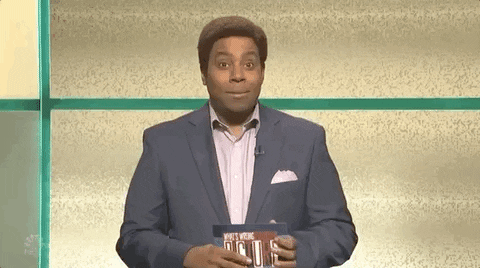
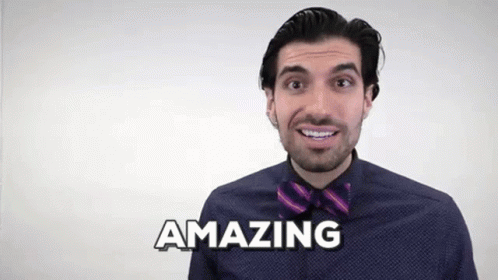

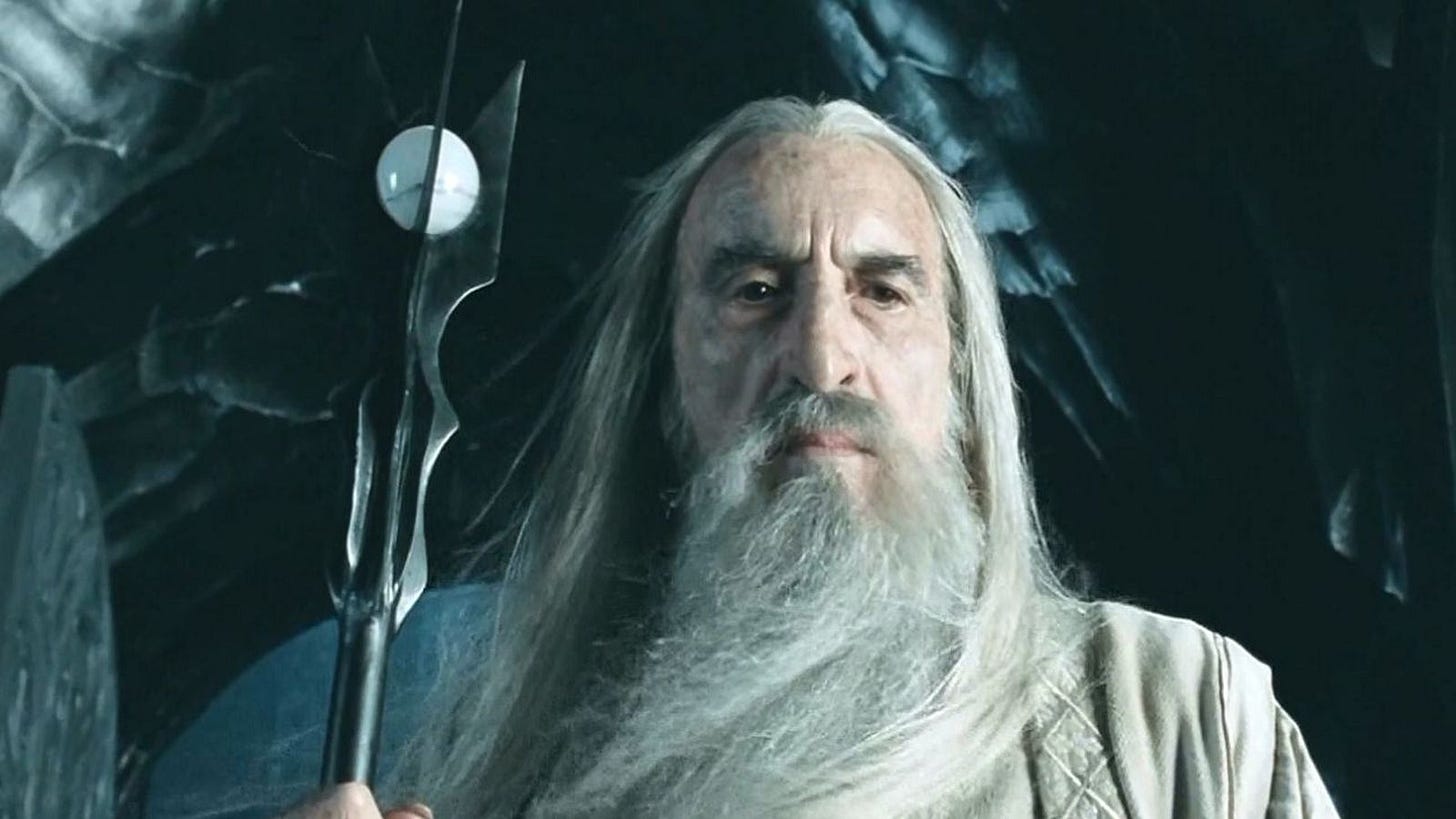
Thank you, Steve, for another thought provoking piece. Apologetics has always been difficult to understand for me. This has helped me greatly. As a convert to Orthodoxy, there is so much to learn and unlearn from past experiences….i am 76 years old and continue to be hungry for knowledge of God and His Holy Church. I pray I will KNOW HIM, in HIS energies more and more each day. Our priest uses your Be the Bee series often in sermons and teachings. You are a blessing!
Thank you for this! I was reading Fr. Matthew the Poor last night, and this caught me particularly:
“Indeed, welcome to Christianity. Perplexity! You see, the rules of this world are governed by human logic. One plus one makes two. Play the market right and you’ll be a success. Study hard and you’ll pass. But the rules of the spirit are not decided by human logic. One plus one can make just one again; and a thousand years are as brief as yesterday. Everything is flipped upside-down in spiritual life. You must know well that the ministry of the Spirit is not subject to human logic. Don’t ever try to interpret it so.”
I appreciate the challenge(s) of your essays! Keep them coming.